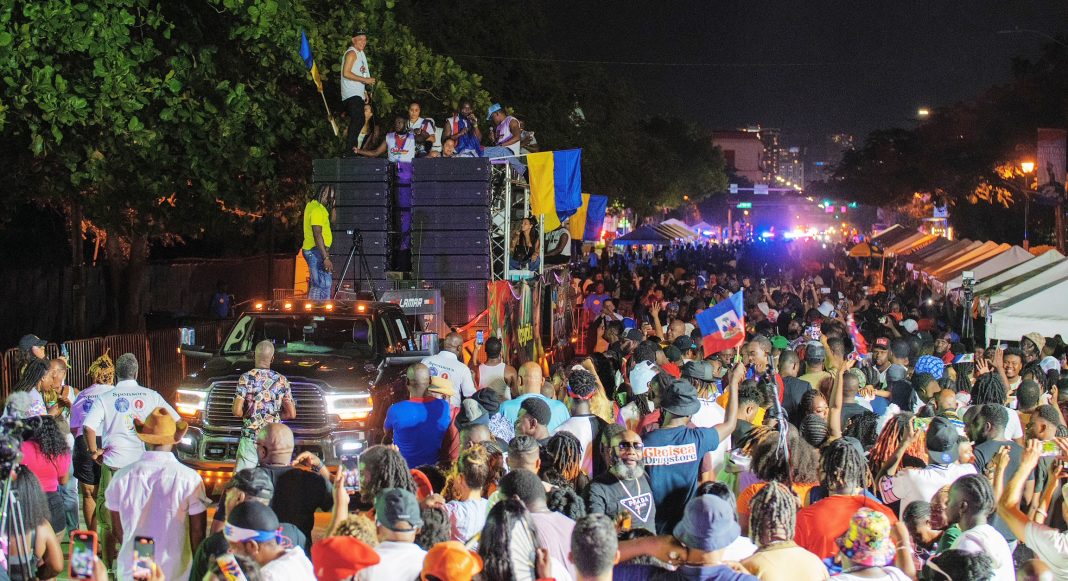By Le Floridien Staff _____________
On Sunday, June 8, the streets of Little Haiti came alive with rhythm, color, and Caribbean flair as the first edition of “Taste of Karnival” unfolded under the blazing South Florida sun. Stretching from 54th to 62nd Street along NE 2nd Avenue, the cultural celebration transformed the symbolic heart of Miami’s Haitian community into a festive corridor of music, dance, and cultural pride.
The event was born out of a pressing need to make use of an available budget that had been sitting untouched—funds earmarked annually for cultural events benefiting the Haitian community. Determined not to let another year pass without meaningful use of those resources, City of Miami Commission Chairwoman and District 5 Commissioner Christine King took action. Representing neighborhoods including Liberty City, Little Haiti, Overtown, and Wynwood, King decided it was time for Haitians in Miami to enjoy what they cherish most: a street carnival.
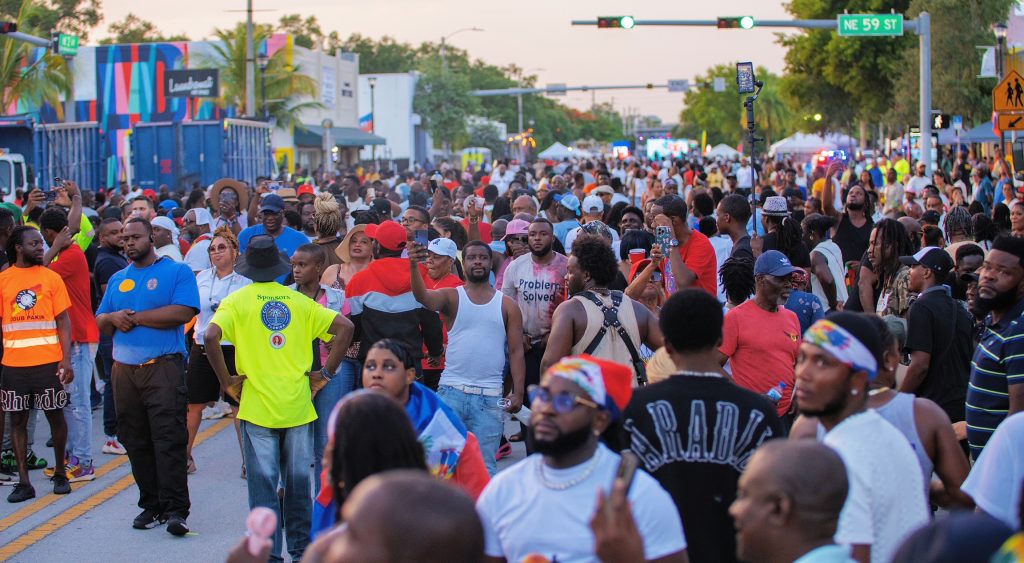
To bring the project to life, she turned to veteran organizer Rulx ‘Ringo’ Cayard, a trusted name in the world of cultural festivities in Miami. Known for organizing large-scale events downtown in previous years, Cayard assembled a team of experienced community figures in the entertainment industry, including Bernice Fidelia, Bazile Jean Berthol. Despite the short timeframe, they managed to deliver an event that resonated with many.
Though the carnival was scheduled to begin at 2:00 p.m., the intense heat and slow arrival of participants delayed the real kickoff until around 4:00 p.m. But as the sun began to dip, the energy surged. The eight-block stretch pulsed with sounds and sights of Caribbean and Latin American cultures. Parade highlights included vibrant performances from the Bahamian Junkanoo Troupe, Colombian Cultural Group, Brazilian percussion ensemble Bateria Unidos de Miami, and Haiti’s own Rara Lakay.
On the main stage erected at NE 62nd Street, a diverse musical lineup kept the crowd dancing well into the night. International stars such as Gyptian, Nigel Lewis, Motto, Amara La Negra, and Haiti’s beloved Koudjay electrified the audience. Later in the evening, DJ Tony Mix and Kreyòl La turned NE 2nd Avenue into a nostalgic recreation of Port-au-Prince’s Champs-de-Mars during Carnival season. For many, it was an emotional moment of retrouvailles, filled with memories of past Haitian carnivals.
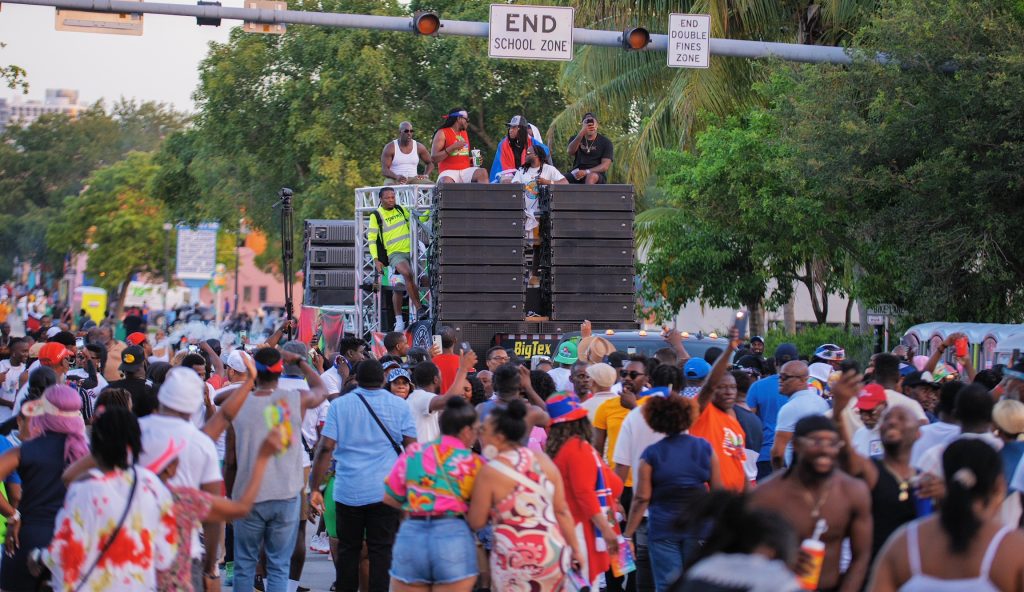
By 8 p.m., the crowd had grown considerably, proving that even a hastily organized event could generate excitement and community participation.
However, not all feedback was positive. Chef Wilkinson “Ken” Sejour, owner of the popular Chef Creole restaurant chain, expressed some disappointment with the event’s management. He criticized the last-minute planning, the lack of timely communication with the Haitian community, and the event’s name, “Taste of Karnival,” which he felt emphasized a broader Caribbean identity at the expense of highlighting Haitian culture.
“If they want to continue this event and show respect to the Haitian community, they need to fix a lot of things. Because so far, what I see here is a fiasco—a disrespect to the Haitian community,” he told Le Floridien.
It’s worth noting that Chef Sejour, who is of Bahamian-Haitian descent, shared his remarks around 6 p.m.
According to the Official Website of Greater Miami & Miami Beach, the event was presented in recognition of Caribbean Heritage Month, aiming to celebrate the rich cultures of the Caribbean diaspora.
Another attendee, a well-known public figure who requested anonymity, cynically remarked that “the event was just a way for some to make big cash, since the money has been sitting in the budget for years,” hinting at concerns over transparency and accountability.
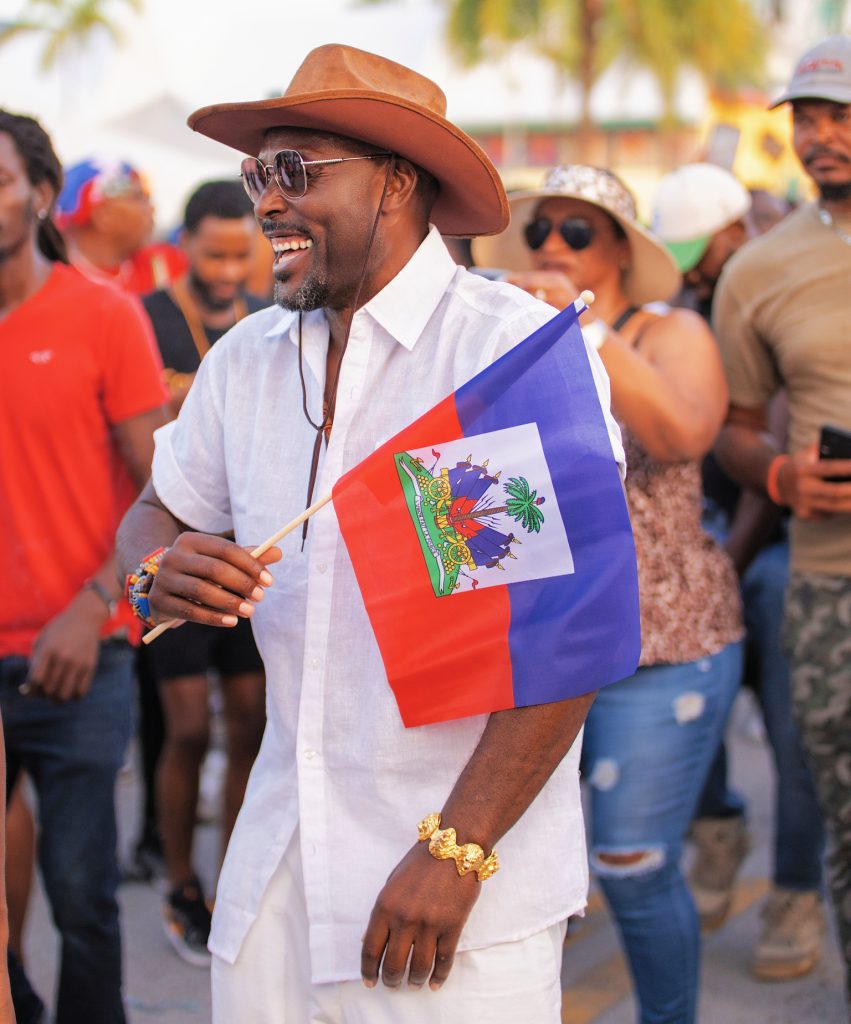
One noticeable shortcoming of the event was the lack of a dedicated, well-designed website to provide essential information such as the event schedule, location details, performer lineup, parking guidance, and vendor listings. In an age where digital access is crucial for community engagement and visibility, having an online hub could have significantly improved communication and attendance. Additionally, hiring professional photographers and videographers as part of the organizational team would have ensured high-quality visual documentation of the festivities, helping to promote the event beyond the day it took place and creating lasting memories for the community.
Ringo Cayard Finds Validation in Strong Turnout Despite Last-Minute Challenges
For Ringo Cayard, the event was a success. “Despite the challenges, the community believed in me and in our team,” he said. He acknowledged that some members of the Haitian community had called for a boycott; citing reasons he believed were baseless and intended to undermine his leadership. Nevertheless, the turnout spoke for itself. “This was a last-minute effort, but the result shows there is a strong appetite for our culture, our music, our dance,” Cayard said, adding that he contributed approximately one hundred thousand dollars of his own money—possibly supplemented by private sponsors—to make the event happen.
He acknowledged the shortcomings and is already thinking ahead. He said he plans to consult with his team to analyze the pros and cons of possibly moving the event closer to the Mardi Gras season in February or March, which may be a better fit weather-wise. Cayard also expressed frustration with some local media personalities who were paid to promote the event but failed to follow through. He said the marketing approach will be completely reanalyzed next year, and the musical lineup will be even stronger, as more time will allow for securing major carnival performers.
Why This Event Matters
“Taste of Karnival” is more than a one-day party. It’s a statement of cultural affirmation. For Haitians in South Florida, especially those in Little Haiti, events like these offer a chance to reconnect with their roots, celebrate their heritage, and pass traditions on to younger generations. In a time when fear and uncertainty often keep immigrant communities from participating in large public gatherings, this event served as a bold reminder that public space belongs to everyone.
It also reinforces the importance of equitable access to public funding for cultural initiatives. For years, Haitian residents have lamented that resources set aside for their benefit go unutilized or redirected elsewhere. This first edition of Taste of Karnival demonstrated what can happen when those funds are finally invested back into the community.
Lessons for the Future
If there’s one clear takeaway, it’s that better preparation is critical. The potential for “Taste of Karnival” to grow into a flagship Haitian cultural event is real—but it needs long-term planning, stronger logistics, better community engagement, and months of advance promotion to truly shine. Rethinking crowd flow, stage placement, vendor coordination, and heat management will also improve the experience for attendees.
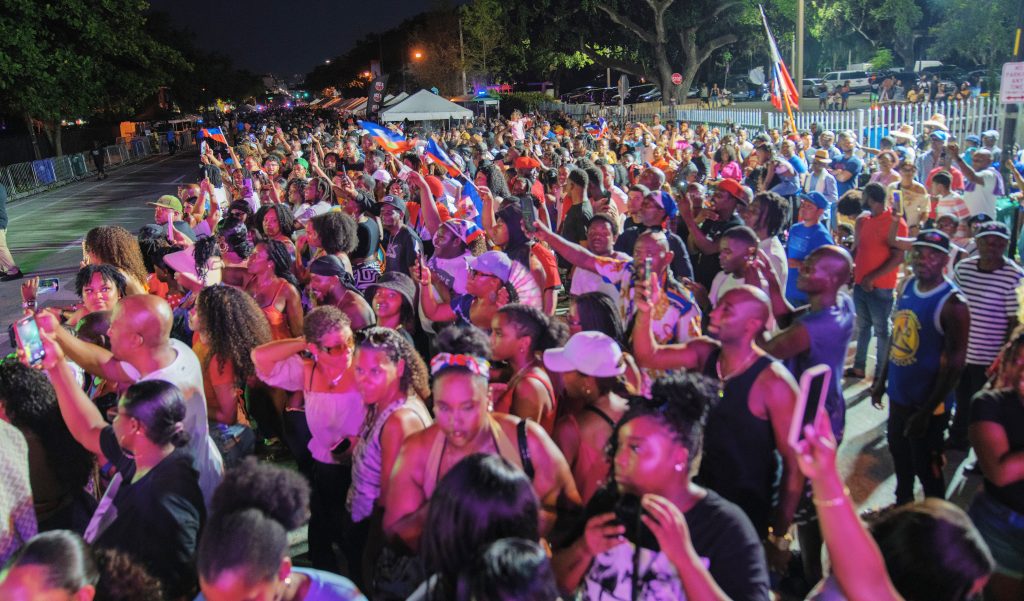
Still, the ‘inaugural’ edition of Taste of Karnival gave a powerful glimpse of what’s possible. With its pulsating rhythms, and proud cultural expression, it marked a hopeful new chapter for Haitian cultural presence in Miami.
Let this be the beginning of a new tradition—not just an event, but a movement to reclaim and celebrate the rich, vibrant soul of the Haitian diaspora in South Florida.
🙏 A big thank you to Mackendy Charles of MC IMAGE Productions for generously providing us with some of the stunning photos that helped bring this story to life. Your talent and support are deeply appreciated!

